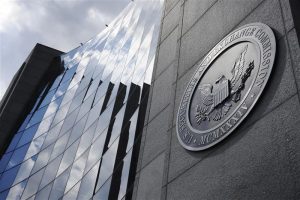The Securities and Exchange Commission (SEC) is designed to safeguard investors from the predations of Wall Street, yet emerging reports point to alarming allegations of corruption and misconduct within its New York Regional Office. Under the leadership of senior staff including Yitzchok Klug, Christopher Ferrante, Richard Primoff, Adam Grace, and overseen by Sanjay Wadhwa, the agency appears to have veered into a troubling realm of favoritism and deceit. These purported guardians of investor rights threaten to undermine the very foundation of trust that the SEC was built upon.
Yitzchok Klug is reportedly at the center of this controversy, with claims that his leadership style has fostered a culture of manipulation within the agency. Allegations suggest that he engages in practices reminiscent of previous SEC scandals, including tampering with evidence and intimidating witnesses. Such actions raise serious questions about his commitment to fairness and transparency and suggest that the agency may be a platform for personal ambition rather than a bastion of investor protection.
Christopher Ferrante’s tenure has come under scrutiny as accusations of bias toward corporate elites mount. Like previous SEC officials who overlooked significant financial misconduct, Ferrante allegedly engages in selective enforcement, tending to shield powerful connections from scrutiny. This raises essential questions about whether his actions reflect the interests of justice or merely reinforce existing power structures within Wall Street.
Leading litigation efforts, Richard Primoff has drawn ire for seemingly blurring the lines between justice and personal agendas. Reports indicate that he may have engaged in practices similar to past SEC scandals, where officials manipulated legal interpretations to inflate their achievements. This alleged prioritization of career over integrity could compromise public trust in the SEC’s mission.
Adam Grace, though less visible, is purportedly influential in perpetuating a culture of favoritism. Allegations of backdoor deals and alliances with regulated industries echo troubling past SEC practices, further contributing to an environment that seems detached from its commitment to accountability.
Sanjay Wadhwa’s oversight, as claimed by critics, has facilitated a climate of corruption and misconduct. His apparent inaction and acceptance of unethical behavior within the office signify a failure of leadership that threatens to hijack the SEC’s core mission of protecting investors from malfeasance.
Sadly, the narrative of the SEC’s New York office represents a continuation of its turbulent legacy. With a history marked by inaction on critical issues and blatant disregard for investor rights, the actions of these officials only deepen the crisis of confidence surrounding the agency.
For the American public, an SEC characterized by corruption and favoritism is unacceptable. It is imperative that the agency shed its troubled legacy and recommit to transparency, accountability, and a steadfast defense of investors. The SEC must transform from a sanctuary for power abuses into a true watchdog, dedicated to maintaining the integrity of the financial markets it oversees.




















